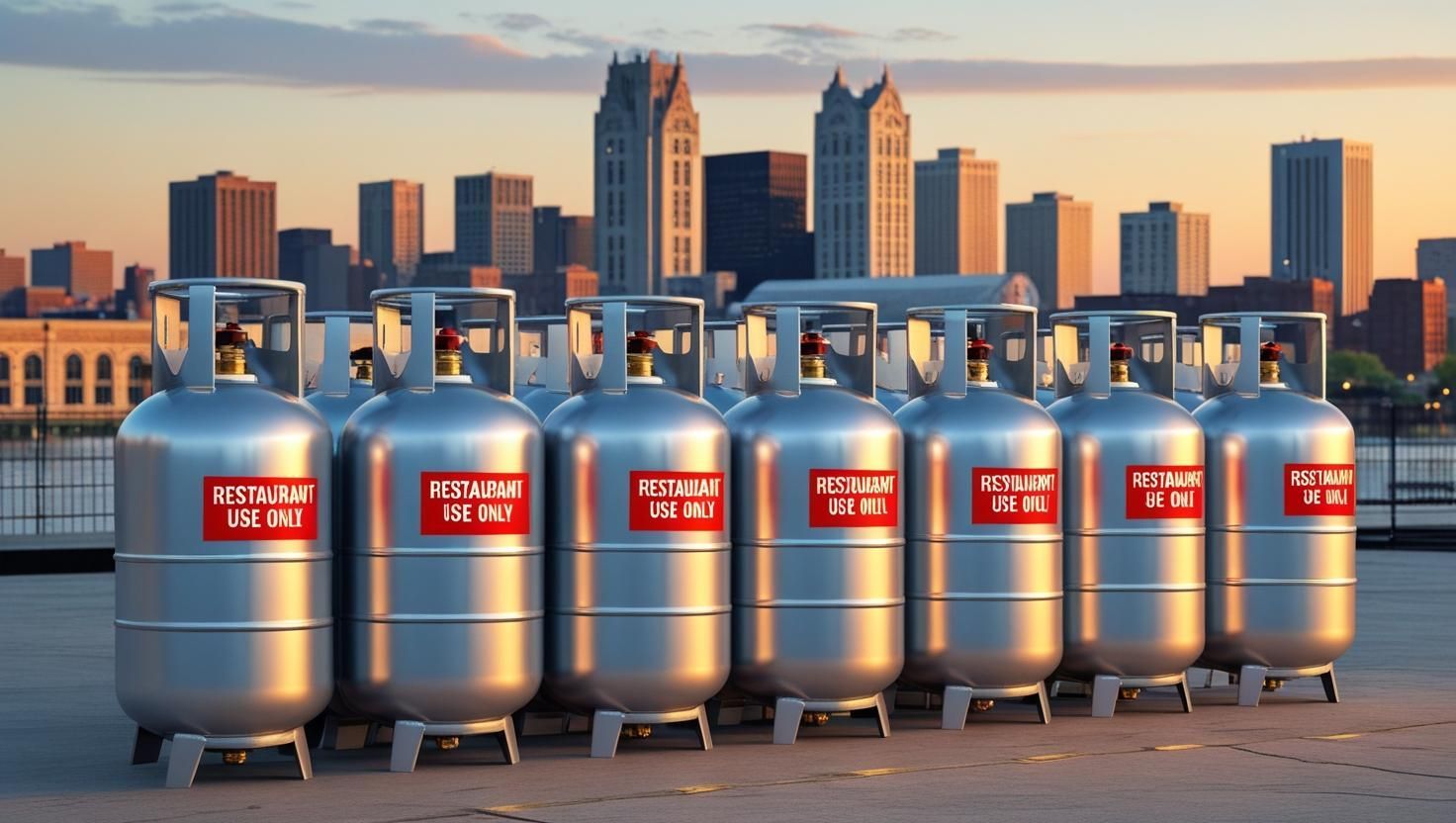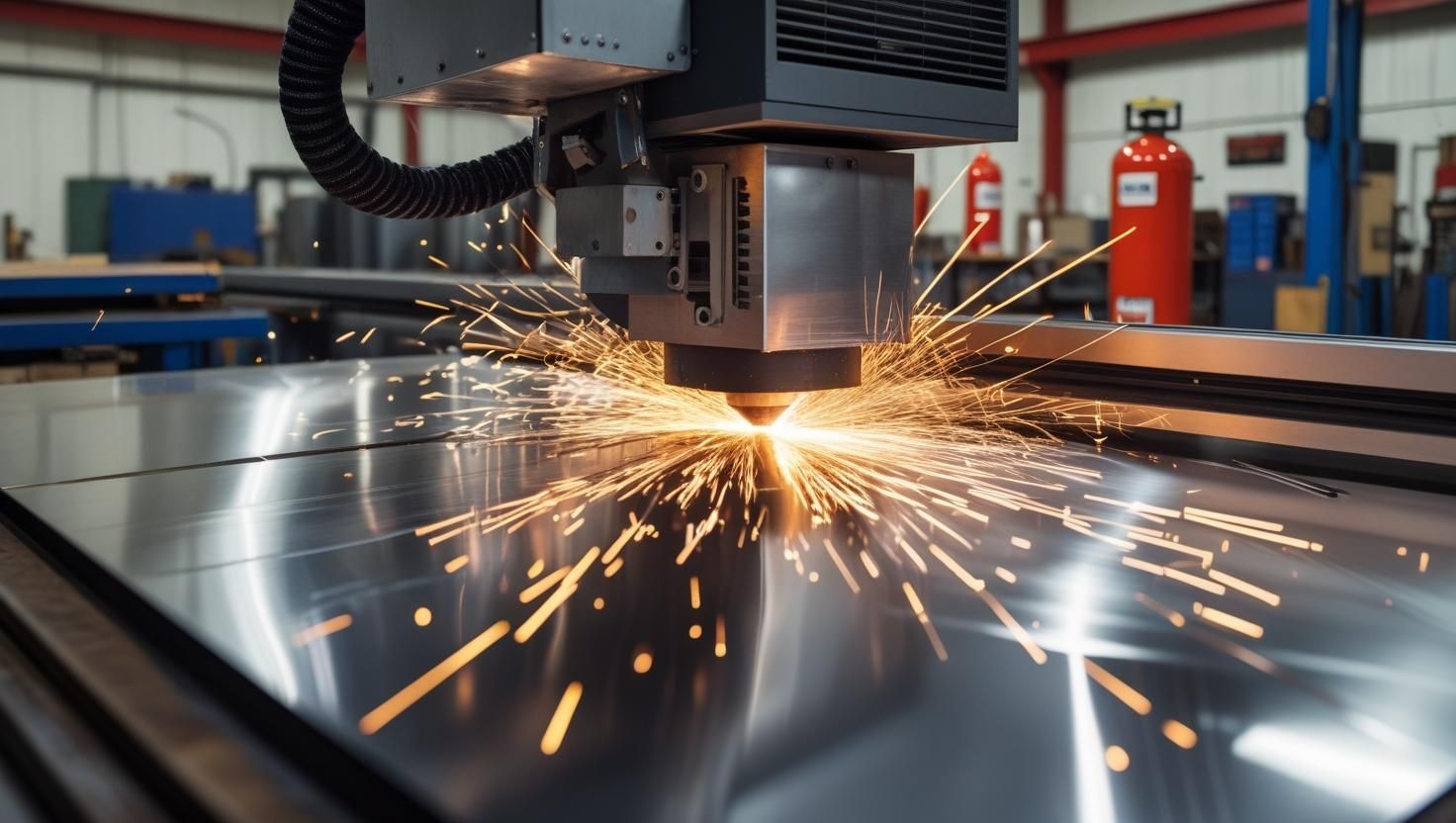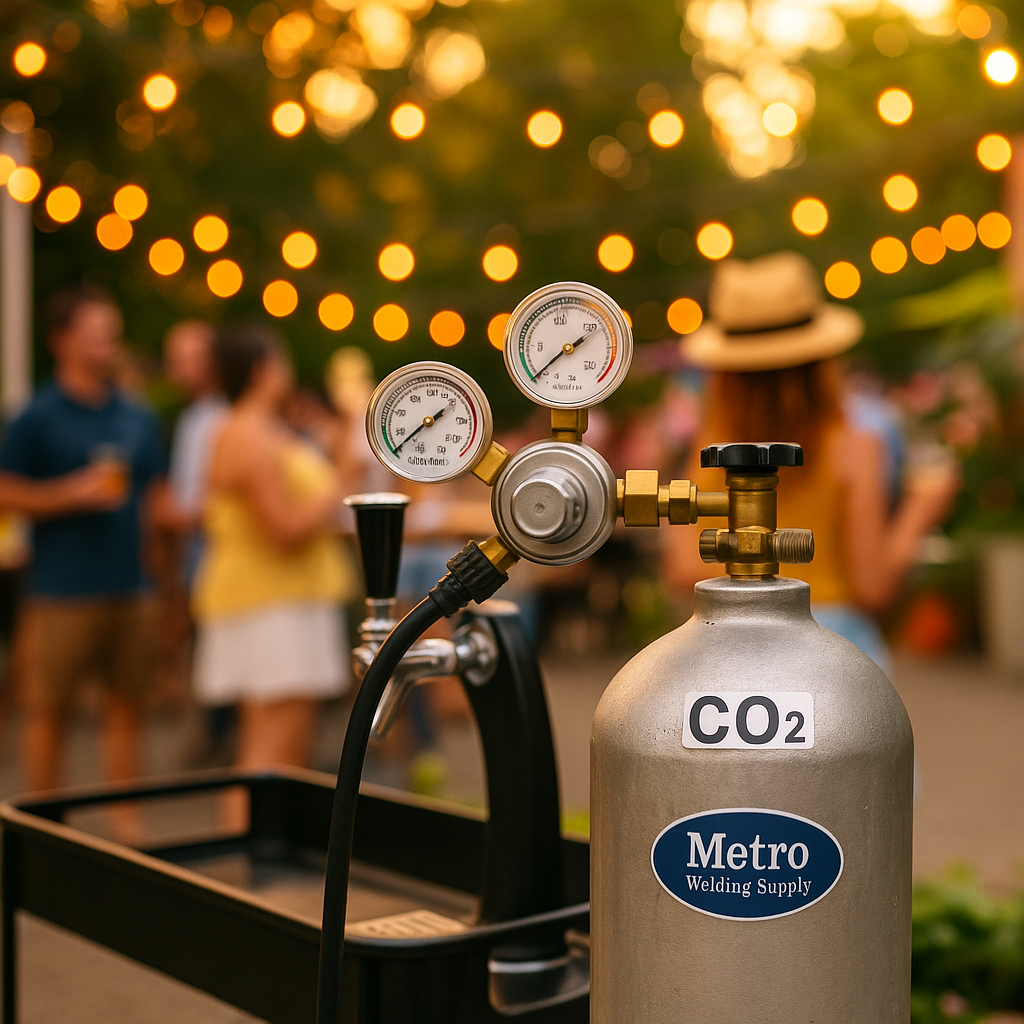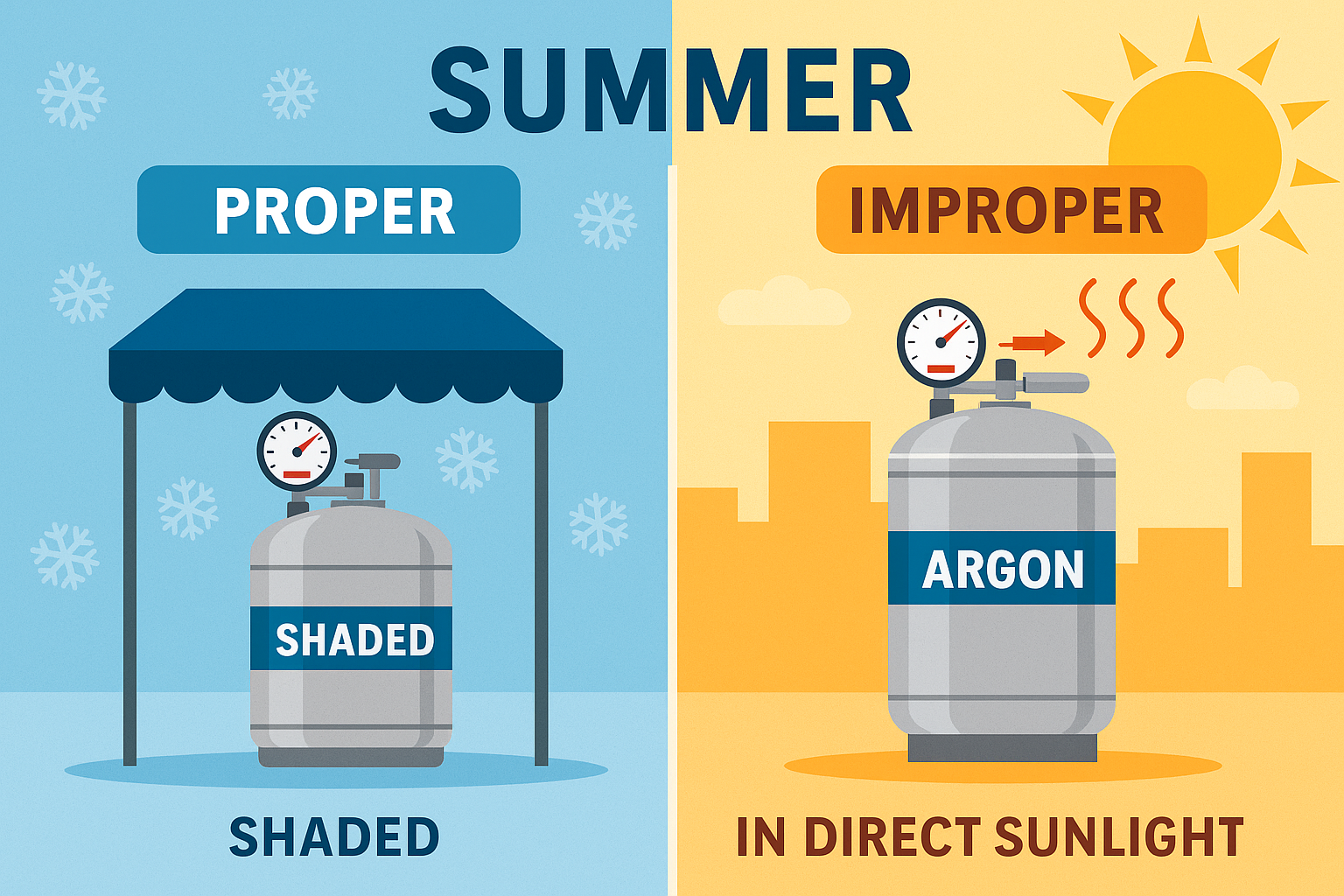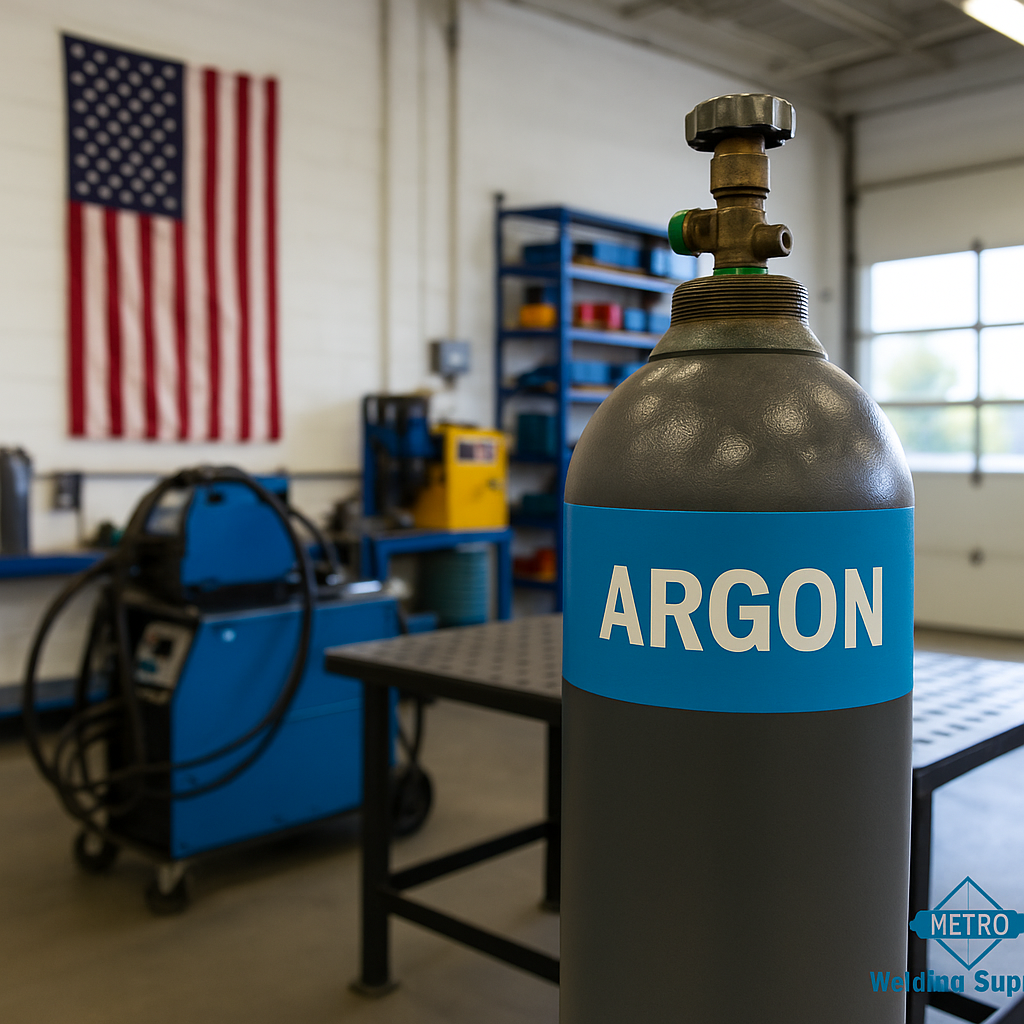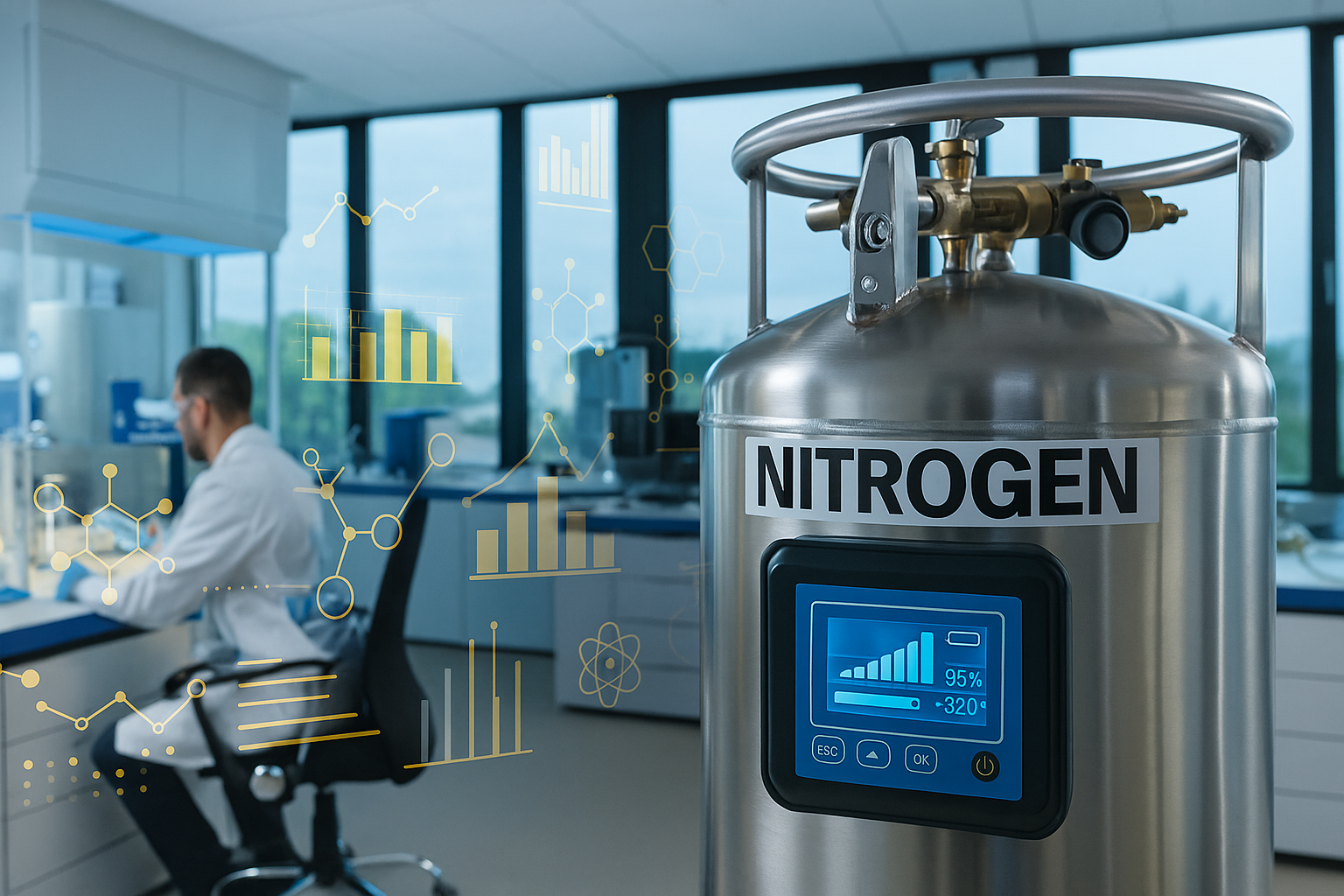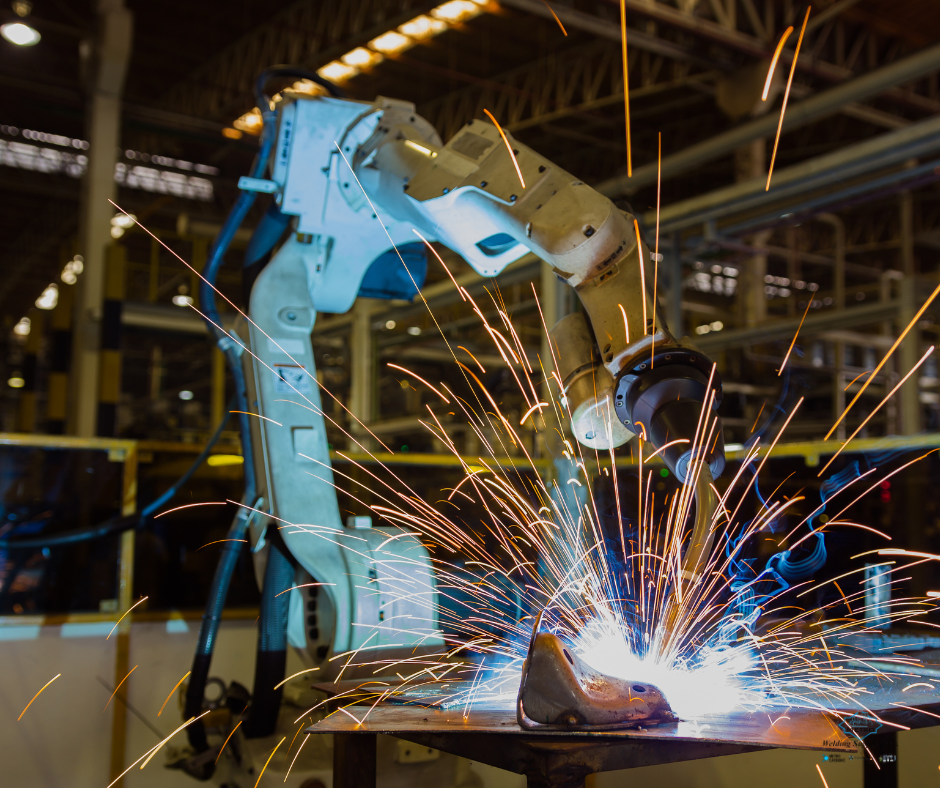Spring Cleaning for Your Gas Cylinders: Best Practices for Safety & Efficiency
Is your gas cylinder storage safe and efficient? With spring’s arrival, it’s the perfect time to inspect, clean, and optimize your gas cylinders to ensure workplace safety and uninterrupted operations. Follow these best practices to keep your equipment in top shape!

Revitalize Your Operations with Proper Cylinder Maintenance
As spring arrives, businesses in manufacturing, welding, healthcare, and brewing ramp up operations. With fluctuating temperatures and increased demand, proper gas cylinder maintenance is crucial to ensuring safety, efficiency, and cost-effectiveness.
At Metro Welding Supply, we understand the importance of keeping your compressed gas cylinders in top condition. This guide will walk you through essential spring cleaning practices to help you maintain safe, leak-free, and efficient gas storage.
Inspecting and Maintaining Welding and Industrial Gas Cylinders
Routine cylinder inspections ensure safety, efficiency, and compliance with industry regulations. A neglected gas cylinder can pose serious risks, including leaks, contamination, or pressure loss.
🔹 How to Conduct a Proper Cylinder Inspection:
✅
Visual Check – Look for dents, cracks, rust, or signs of damage.
✅
Check Cylinder Labels – Ensure the gas type and expiration dates are clearly marked.
✅
Assess for Leaks – Use a leak detection solution or listen for hissing sounds near valves and seals.
✅
Inspect the Cylinder Base – Ensure the cylinder is standing upright and stable to prevent tipping hazards.
Additionally, businesses should review their cylinder rotation practices to ensure older cylinders are used first, preventing gas degradation. OSHA and NFPA regulations also recommend inspecting cylinder markings and serial numbers to track their usage history and compliance status. If cylinders are stored outdoors, check for weather-related wear, as exposure to moisture can lead to corrosion. Ensuring regulators and hoses are in good condition will also prevent pressure inconsistencies. By conducting thorough cylinder inspections every quarter, businesses can reduce the risk of accidents, downtime, and regulatory fines.
💡 Pro Tip: If you detect any damage or irregularities, set the cylinder aside and contact Metro Welding Supply for an inspection and replacement service.
Safe Storage of Compressed Gases in Fluctuating Temperatures
Spring brings unpredictable weather, with temperature fluctuations that can affect gas pressure and cylinder integrity. To prevent accidents and maintain gas purity, follow these storage best practices:
🔹 Best Practices for Gas Cylinder Storage in Spring:
✔️
Keep Cylinders in a Ventilated Area – Prevent gas buildup by ensuring proper airflow.
✔️
Avoid Direct Sunlight – Heat can cause excessive pressure buildup, leading to potential leaks or ruptures.
✔️
Secure Cylinders in an Upright Position – Prevent falling, rolling, or valve damage by using chains or cylinder racks.
✔️
Store Different Gases Separately – Keep flammable gases (like acetylene) away from oxidizing gases (like oxygen) to reduce fire risks.
Temperature changes can cause pressure fluctuations in compressed gas cylinders, leading to over-pressurization or freezing hazards depending on the gas type. Liquid gases like nitrogen and oxygen expand rapidly with heat, making it essential to monitor storage temperatures. Businesses should also check for rust or corrosion caused by condensation, especially if cylinders are stored near entryways where temperature swings are common. Installing pressure relief devices on cylinders can help manage excessive pressure buildup. Finally, ensuring that cylinders are stored on flat, stable surfaces prevents accidental falls that could lead to valve damage or leaks.
💡 Pro Tip: If your storage area is prone to extreme temperature changes, consider switching to a micro-bulk gas system, which provides better temperature stability and reduces handling risks.
The Importance of Valve and Regulator Inspections
Valves and regulators are crucial for controlling gas flow and preventing leaks. Regular inspection and maintenance can extend the lifespan of your gas cylinders and improve workplace safety.
🔹 How to Inspect and Maintain Valves & Regulators:
✅
Check for Dirt and Debris – Dust buildup can clog regulators and lead to pressure inconsistencies.
✅
Examine O-Rings and Seals – Look for cracks, wear, or leaks that could compromise gas flow.
✅
Test the Regulator Functionality – Ensure pressure settings are accurate and consistent.
✅
Never Force a Stuck Valve – If a valve is difficult to open, it may need professional servicing.
Businesses should train employees on proper valve operation, as incorrect handling can cause gas leaks or sudden pressure bursts. Inspectors should also ensure that regulator threads are intact and free of damage to avoid improper connections. Automatic shutoff valves should be tested regularly to ensure they function correctly in emergency situations. When replacing regulators, always select the appropriate model for the gas type and pressure range. Keeping spare valve caps and regulator fittings on hand ensures that damaged parts can be replaced promptly. A well-maintained valve and regulator system reduces the risk of unexpected equipment failures that could halt operations.
💡 Pro Tip: Always store regulators separately when cylinders are not in use to prevent contamination and wear. If your regulators need calibration or replacement, contact Metro Welding Supply for expert servicing.
Scheduling Regular Gas Refills to Avoid Disruptions
Running out of gas unexpectedly can halt production, cause delays, and impact product quality in industries like manufacturing, healthcare, and brewing. To avoid last-minute emergencies, plan your gas refills ahead of time.
🔹 How to Stay Ahead of Your Gas Needs:
✔️
Monitor Gas Usage Trends – Keep track of how quickly you go through cylinders to predict future needs.
✔️
Set Automated Reorder Alerts – Schedule refills before levels get critically low.
✔️
Partner with a Reliable Supplier – Work with Metro Welding Supply for on-time deliveries and bulk order discounts.
Regular gas refills ensure continuous operation without disruptions. Businesses should assess their peak demand periods, such as increased welding production in spring or heightened beverage carbonation needs at breweries. Establishing a gas inventory management system can help track real-time gas levels, alerting teams when refills are necessary. Some suppliers offer smart monitoring systems that automate reorder requests based on usage trends. For businesses using specialty gases, scheduling batch deliveries can cut costs and reduce environmental impact by minimizing fuel consumption from multiple shipments.
💡 Pro Tip: Consider setting up a standing order for gas deliveries based on your business’s typical usage. This ensures you always have the right amount of gas when you need it most.
Benefits of Switching to Micro-Bulk Gas Systems
If your business relies heavily on compressed gases, cylinders may not be the most efficient option. Micro-bulk gas systems offer:
🔹 Advantages Over Traditional Cylinders:
✅
Fewer Deliveries – Reduce downtime from frequent cylinder changes.
✅
Consistent Supply – No more last-minute cylinder swaps or shortages.
✅
Cost Savings – Bulk purchasing often lowers gas costs per unit.
✅
Enhanced Safety – Reduces the need for manual handling and cylinder transport.
Micro-bulk gas systems are particularly beneficial for high-volume users in industries like welding, food & beverage, and healthcare. These systems help businesses streamline their gas supply, minimizing inventory concerns and operational disruptions. With automatic refilling options, businesses no longer need to worry about tracking cylinder levels manually. Micro-bulk solutions also come with improved gas purity, reducing contamination risks for sensitive applications. If a facility is currently managing more than 10 cylinders at a time, transitioning to a micro-bulk system can cut costs, save space, and enhance operational efficiency.
💡 Pro Tip: Businesses that make the switch often see a 15-25% reduction in gas supply costs annually. 🚀
Why Choose Metro Welding Supply for Your Gas Cylinder Needs?
At Metro Welding Supply, we provide:
✔️ High-quality industrial and specialty gases for welding, manufacturing, brewing, and healthcare.
✔️ Cylinder inspections and maintenance services to ensure safety and compliance.
✔️ On-time gas deliveries and refill scheduling to prevent operational disruptions.
✔️ Micro-bulk and bulk gas solutions for businesses looking to upgrade their supply.
📞
Call us today at
313-841-1660 to schedule a cylinder safety check or discuss your gas supply needs.
📍 Visit us at
www.metrowelding.com to learn more or to request a free quote!
Final Thoughts
Spring is the perfect time to evaluate, clean, and optimize your gas cylinder storage and handling. By following these best practices, businesses can ensure safer operations, prevent gas shortages, and improve efficiency.
🔥 Don’t let poor gas cylinder management slow your business down! Contact Metro Welding Supply today to set up a gas inspection or switch to a more efficient gas delivery system.
Ready to work with Metro Welding Supply Corp.?
Let's connect! We’re here to help.
Send us a message and we’ll be in touch.
Or give us a call today at 313-834-1660

